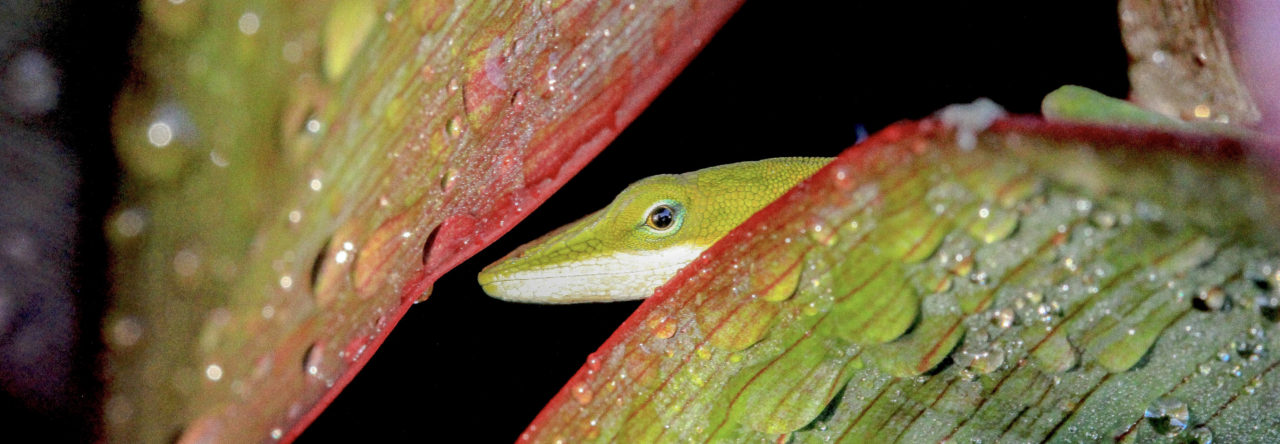
A blessed arrival. How often do females lay their eggs? Information needed!
We’ve previously reported on a study of seasonal population reproductive cycles of female A. cristatellus from adjacent shade-dwelling and open-sunny sites being conducted by Luisa Otero, Ray Huey and George Gorman. George writes in to say that they “would appreciate ANY information on egg laying intervals for individual female anoles [of any species] either from captive breeding programs or from field studies. If published, references are appreciated. If unpublished, access to your data is doubly appreciated. Obviously, if there exist ancillary data on temperature regimes of the egg depositors, that would be even more wonderful.”
Please respond as a comment or write George directly.
- Evolution in Real Time on Lizard Island - March 23, 2025
- Spider Snags Adult Anolis osa - March 22, 2025
- An Homage to the Green Anoles of New Orleans - March 21, 2025


Martha Muñoz
When I was breeding Anolis cybotes, those females could crank out 2 eggs per week, sometimes more. Some didn’t lay but once every 2-3 weeks. On average, I’d get about 1 egg per week per female. I should say that those females were from a low elevation locality on Hispaniola. We kept them at 29-30C on a 12:12 light:dark cycle. I fed them 0.5″ vitamin-dusted crickets 2-3 times per week.
George Gorman
Thanks, Marta. Since all were at a constant temp. and presumably had similar food regime, might size difference account for the range of 2 eggs/week vs. once per 2-3 weeks?
Robert Powell
If you haven’t already, check the latest edition of Fläschendräger and Wijffels book on Anolis. The only downside of their book is that it’s in German (and I don’t think an English translation exists — yet). However, it includes a lot of information on husbandry and provides references for those that weren’t the authors’ personal experience. Axel also was very helpful in providing a number of relevant references for us when we were working on our book on the natural history of West Indian reptiles and amphibians (in which you might find a few pertinent references, although we didn’t thoroughly explore the husbandry literature).
George Gorman
A belated thanks. I’ll see if I can find a helpful translator.